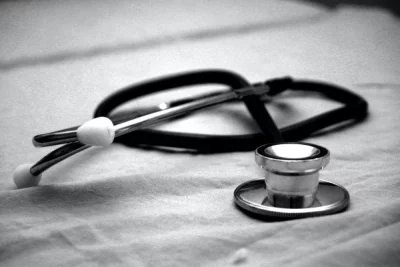

Wrong! We will test for sexually transmitted infections by taking an additional test (swabs) if you give us a history of multiple partners, or request it. It is not done routinely. Blood tests are required to test for HIV, Hep B, Hep C and syphilis. Other STD’s require urine and vaginal samples.
Wrong! Any missed pill is a risk but the worst pills to miss are at the active pills at either end of the sugar pills. You are safe for the whole time unless you miss a pill when you are unsafe for the next week and if you miss pills in the 7 days leading up to the sugars you should skip the sugars that month and go straight on to the active pills in the next pack
Not true, but they need their medication to maintain a healthy maximal level of lung function so when challenged with their usual triggers eg cold, flu, allergy, exercise their lung function does not drop to a dangerously low level.
Unwise! No diagnosis can confidently be made over the phone. If you have symptoms, please make an appointment. ON some occasions when just advice is needed , consultations can be done over the phone.
Medicare will only pay for those tests that are medically necessary. It does not pay for health screening eg tests on a healthy person with no symptoms.
Millennium health care is about prevention. Your need to see a doctor at least annually for your life extending preventive care activities to be done. We recommend annual medicals for all over 40 (not Medicare refundable).
not true. Blood tests are requested for individual items relevant to your symptoms and the history you have given us. It does not test for cancer, HIV or your blood group routinely.
Wrong assumption! Check with the DR how you are to receive results. Doctors see 150+ patients / week. A 3-min phone-call to each patient would take 8 hours! It is your responsibility to obtain your results! It is essential you to make arrangements to obtain your results to ensure they have been received by the practice and a doctor has seen them
Mostly not true, occasional cancers eg leukemia, will be detected by blood tests. Most cancers need other tests to diagnose them.
wrong! It takes at least 2-3 weeks from when you fall pregnant for enough pregnancy hormone to be present in the urine to be detected reliably. If the urine is dilute or not a first morning specimen it may also give a false negative result or if a pregnancy is in a fallopian tube rather than the uterus (ectopic), a lower level of pregnancy hormone than normal is present and may take longer to reach a detectable level. Always repeat the test in a week if suspicious you are pregnant.
Wrong! Some diseases are very difficult to diagnose and may even take years e.g. average time to diagnosis of Crohns disease is 3 years and acromegaly is 11 years! It may take time for all the pieces of the medical diagnostic jigsaw to emerge. Few medical conditions can be diagnosed in one visit. This is why having a regular doctor to go through the diagnostic process with is so important otherwise pieces of the diagnostic jigsaw are lost and may delay your particular diagnosis. E.g. patient seen 1/99 with thrush, seen again 4/99 with a boil, doctor is alerted to fact these two symptoms may signal diabetes but only one visit alone of either of these symptoms would not warrant testing for diabetes, only the combination does so if this patient is seen at the one practice it is likely diabetes will be tested for, but if at different practices, its unlikely the earliest diagnosis would be made.
If you have ever had sex in your life, or have abnormal vaginal bleeding-you need to have paps till age 70. Cervical cancer is caused by a virus you catch from having sex. It may take 20-30+ years for the cancer to develop. There is a vaccine now to help prevent cervical cancer.
BYO mask or purchase in a vending machine in the building $2
To create a safe place to visit and work, we have introduced special hospital grade Hepa filters in every room that remove 99.97% of all viruses, bacteria, chemicals and have fresh air exchange turnover equal to hospital standard air conditioning along with Co2 monitoring.
Thank you for caring about the most vulnerable in the community.
Extra Medicare benefits are now available to eligible patients who have registered with the Australian Government’s MyMedicare eg longer telehealth appts, care plans and mental health plans. WE offer 7 day access (Telehealth on Sundays) and you can still see your local practice if you need to when registered with us. To register or learn more about how MyMedicare can benefit you, click here or ask on arrival
There are multiple ways you can register with your chosen practice in MyMedicare:
MyMedicare registration will not prevent you from accessing care from other practices and healthcare providers. MyMedicare does not tie you to a particular healthcare provider. You can change your preferred GP within your registered practice at any time.